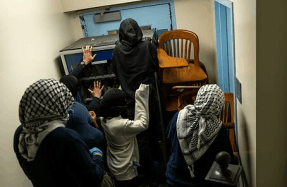Ending Homelessness: How New Orleans Reduced Their Homeless Population By 90 Percent

Across the U.S., more than a half million people have been identified as homeless. This week, Here & Now is looking at four communities around the U.S. that have successfully reduced homelessness.
New Orleans, Louisiana, faced a major crisis in homelessness following Hurricane Katrina. In 2007, two years after the storm, there were more than 11,600 homeless people in the city. Since then, New Orleans stepped up its effort to tackle homelessness and has brought that number down 90 percent.
Martha Kegel, executive director of Unity of Greater New Orleans, tells Here & Now‘s Jeremy Hobson the strategy to tackle the “unprecedented explosion” of homelessness in the city following Hurricane Katrina was threefold.
First, Kegel says, Unity of Greater New Orleans — a nonprofit leading a collaborative of organizations providing housing
You’re reading a preview, subscribe to read more.
Start your free 30 days





